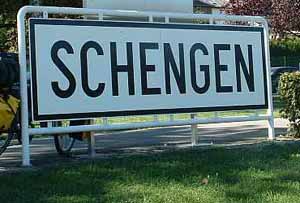Earlier this week, European Commission has expressed its continuous support to European Presidency’s efforts of including Bulgaria and Romania into Schengen area. It is a big diplomatic win for Romania, the country which has faced rejection to the entry in the Schengen region several times along with Bulgaria. In May 2011, The European Parliament’s civil freedoms committee had approved a recommendation for Bulgaria and Romania to joined Schengen free-travel zone. The principal condition for the nations joining the multinational Schengen zone is their ability to ensure the security of the EU’s external borders.
 After all these development and use of power against the two countries, do we think Romania really needs the entry in the Schengen area? Recently,Romanian Foreign Minister, Titus Corlatean said, “We have lived without entry to the Schengen zone for a long time, and we can live without it for a longer time as well.”
After all these development and use of power against the two countries, do we think Romania really needs the entry in the Schengen area? Recently,Romanian Foreign Minister, Titus Corlatean said, “We have lived without entry to the Schengen zone for a long time, and we can live without it for a longer time as well.”To know what Romanians think about their membership of European Union, we asked Gabriela Ionita, Editor in Chief of Power&Politics World.
TWR: – What do Romanians think about Germany preventing them to enter Schengen Agreement Last Month?
G. Ionita: – Pragmatically speaking, Romanian people have many other real problems. Discussion about the opposition of some country like Germany, Netherland (official) or France (unofficial) is rather an issue of mass-media agenda. According to a poll, there were in fact seven states that expressed their disagreement regarding Romania`s accession to Schengen zone. Sure, we can speculate about the fact that three of these states are run by the family of European political parties where its part also actual in power party PSD, and the four belong to the European political family where is part opposition party PDL. However, the position of a State to the Schengen expansion is not linked necessarily to European policy, but domestic policy and how it will affected the State. Hans-Peter Friedrich, German Interior Minister and member of the Christian Social Union (CSU), part of Chancellor Angela Merkel’s party, publicly announced that Germany will use its veto, if required, to prevent Romania from joining the Schengen zone. But, we must not forget that Germany is one of the states that negotiated the plan of Romania’s accession to Schengen in two stages, thus overcoming the deadlock from 2012 in the talks on the accession of Romania.
TWR: – What do Romanians feel about EU? Are they happy to join it in 2007? What are the significant positive changes in Romania after joining the EU?
G. Ionita: – If we look at the broad aspect, we can say that Romania is one of the European Union countries with a balanced distribution between Euro-sceptic and Euro-optimistic. Of course, joining the EU was a reason of joy for all Romanian. Joining NATO and the EU are the most important steps of the past 20 years. Unfortunately, subsequently, the governments have not been able to intelligently and efficiently utilize the benefits of this membership. The simplest and perhaps the most general result of accession to the EU is the free movement of persons. With all the consequences from here: labour mobility, more opportunities, and the chance to invest in EU countries. Of course, the economic crisis has diminished these opportunities, but Romania will still gain as Romanian state cannot provide working and living conditions at the level of many EU countries.
TWR: – Do you think that Euro has done any better in Romania? Is it promising in terms of Romania’s economic future?
G. Ionita: – Romania’s accession to the Euro currency area was scheduled to 2015. Nowadays, already there is a discussion of a postponement until 2020. Eurozone has problems in itself, Greece and Cyprus being only the most visible. Presence of Euro currency in Romanian market, of course brought benefits and some drawbacks too, but the transition to the single currency is already another discussion with deeper implications. Now the question here is: Is the Romanian economy strong enough for such a change? The most likely answer is No. In fact we also have examples of countries with a strong economy which regressed after joining to the Eurozone. Any automatic increase in prices would be supported by an increase in income of population, which in the current issue of the economic crisis is useless to consider.

